#creole jazz
Explore tagged Tumblr posts
Text
Watch "KREOL JAZZ PROJECT" on YouTube
youtube
#kreol jazz project#kreyol jazz project#creole jazz#Caribbean jazz#caribbean fusion jazz#fusionjazz#foundation haiti jazz#pap jazz#haiti legends#haitian Jazz#martinique#Guadeloupe#african jazz#haitian jazz#Youtube
4 notes
·
View notes
Text
Louisiana Eddie Munson hcs
- Creole was his first language
- grew up in the bayou chasing creatures and taunting the gators
- who never went to the swamps without a bag or marshmallows
- watched his mama cook jambalaya, gumbo, raccoon stew, and other cajun and deep south dishes
- one of the few things he showed up to Wayne's with was a box of his mamas recipes
- has spanish and/or native roots
- plays/listens to bluegrass, zydeco, jazz, and cajun
- went shrimping and nutria hunting
- has a few memories of mardi gras from when he was little
- one of his neighbors taught him how to play the banjo, and they'd play together during neighborhood gatherings
- big culture shock after moving to hawkins
- grew up catholic until he moved in with Wayne
- writes his d&d notes in creole so none of the kids can read them and cheat on the newest campaign
- would practice for hours to get rid of his accent cause he was bullied for it
- still slips through when he has strong emotions though
- who lays the Southern Charm on THICK when he's crushing on someone
#eddie munson#stranger things#au#wayne munson#creole eddie munson#louisiana eddie munson#southern eddie munson#secret jazz fan eddie munson#op is not from louisiana#but is very fascinated with the history and culture#baby eddie with an accent my beloved#hed be so cute
16 notes
·
View notes
Text

Tracklist:
Se pou m ale • Kote chalè a • Yon rezon pou m viv • Say Yes • Mind Jasm • Black Vibrations
Spotify ♪ Bandcamp ♪ YouTube
#hyltta-polls#polls#artist: bel and quinn#language: english#language: french#language: hatian creole#decade: 2020s#Jazz#R&B#Soul#World#Funk
10 notes
·
View notes
Text
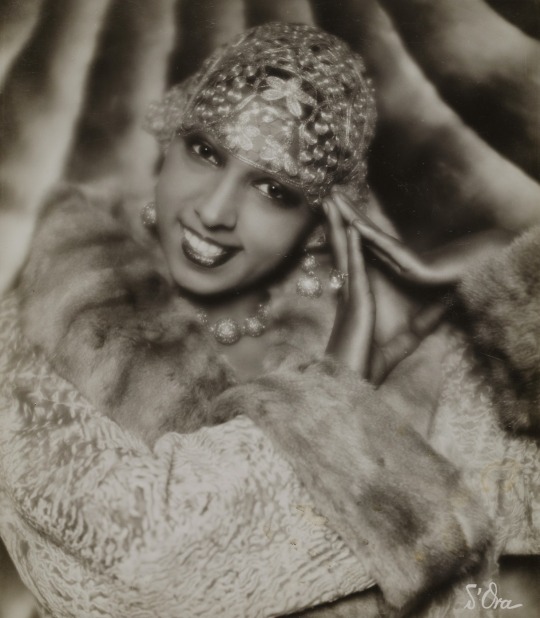
Madame d’Ora (Dora Kallmus), Entertainer Josephine Baker, 1928.
Museum für Kunst und Gewerbe Hamburg. "I have walked into the palaces of kings and queens and into the houses of presidents. And much more. But I could not walk into a hotel in America and get a cup of coffee, and that made me mad. And when I get mad, you know that I open my big mouth. And then look out, 'cause when Josephine opens her mouth, they hear it all over the world ..." – Josephine Baker
#1928#photography#josephine baker#dora kallmus#the black pearl#la baker#jazz age#entertainer baker#baker#vaudeville#dancer#Freda Josephine Baker#Folies Bergère#roaring twenties#black venus#black pearl#Bronze Venus#Creole Goddess#quote#human rights#human rights quote#josephine baker quote#baker quote#civil rights activist#civil rights#civil rights quotes
107 notes
·
View notes
Text
French Quarter, New Orleans, Louisiana, USA...






#hiking#travel#new orleans#louisiana#french quarter#jackson square#andrew jackson#usa#america#north america#cajun country#french culture#american culture#back alley#nighttime photography#walking tour#urban life#urban landscape#mardi gras#balcony#american history#southern hospitality#beignets#american folklore#folklore#haunted#ghost stories#louisiana creole#jazz#louis armstrong
11 notes
·
View notes
Text
316: Toto Bissainthe // Chante Haïti

Chante Haïti Toto Bissainthe 1977, Arion
“These songs are mostly slave songs taken from the Vodou cult. They speak of the quotidian, of the suffering of exile, and the desire of Africa, not as a geographical place but as a mythical land of freedom. They express their resistance and their refusal: resistance to the colonizer, refusal of his politics, of his religion, of his culture, of his language.”
So begins Toto Bissainthe’s statement on the rear of Chante Haïti, her 1977 collaboration with a small combo of Antillean folk and French jazz musicians: vocalists Marie-Claude Benoît and Mariann Mathéus; percussionists Akonio Dolo and Mino Cinélu (Miles Davis, Weather Report, Gong); Patrice Cinélu on acoustic guitar; and Beb Guérin on the double bass. The songs indeed fuse the Vodou ritual of her native Haiti with the European avant garde sounds of her adopted milieu of Paris, where she had moved to pursue acting and found herself a de facto exile due to the political situation back home. Bissainthe had become a prominent figure in the French theatre, performing in new plays by Beckett and Genet and co-founding Les Griots, France’s first Black theatre company; by the late ‘70s, she was an acclaimed recording artist to boot. Her accomplishments made her a prominent figure in the Haitian diaspora and her activist streak is apparent throughout Chante Haïti, explicitly linking the grief and yearning for liberation in these traditional ceremonials with the country’s contemporary struggles.
Like many songs on the album, the Creole words of opener “Soley danmbalab” mourn the people's estrangement from Mother Africa, a crossing which can neither be reversed or repeated. It begins like a field recording, Bissainthe’s soulful, Miriam Makeba-esque voice set to a chorus of rattles and bells and gurgling masculine whispers. As the song develops, her melody wends like a stream through the dense jungle of percussion, dissonant bass, and counterpoint chanting. Eventually, Mino Cinélu’s arrangement becomes more free, the male chorus imploring the Oungan (a male Vodou priest) to intercede with the creator on the people’s behalf as the tune breaks down into an increasingly abstract bass and drum interplay, while the three female singers exchange birdlike vocal improvisations.
youtube
“Ibo Ogoun (Variations)” is even wilder, evoking a trance ritual, the spirits speaking in many tongues through the celebrants as they seek to summon Ogun, God of Iron and War, to lead the battle of liberation. One of the male percussionists times his tanbou beat so that it hits just as he sings certain notes, creating the illusion that he voice has suddenly lurched down an octave for a moment, almost like a DJ freaking a vocal sample. Bissainthe, Mathéus, and Benoît match the intense drumming with some crazy syncopations, sometimes talking, sometimes hissing and whispering, sometimes wailing and ululating.
Most of the album takes on a more meditative tact, anchored by Guérin’s plangent double bass. On the smoky “Papadanbalab,” an entreaty to the serpent creator Damballa to bear witness to the penury of his people, Bissainthe sways over a slinky jazz bass line, Patrice Cinélu adding mellow acoustic fusion licks. The song seems like a brief stopover in a Parisian club. But even the less overtly intense tracks pack plenty of musical interest. “Lamize pa dous” has this hypnotic rhythm that sounds exactly like a micro house beat—in fact, the first thing it made me think of was Ricardo Villalobos’ Alcachofa, or Animal Collective at their campfire ravingest. The song is about the moment of surrender to death, the winnowing of time represented by water encroaching on all sides, the realization too late that “we spend our lives trying to fill the sea with stones.”
Listening to a record like this, especially in light of Bissainthe’s note on the back excoriating the colonialist ethnographer who reduces Haitian folklore to “excitement and violence,” requires at least a smidgen of awareness from the white listener that Chante Haïti is not intended for them. The traditions it engages with are of deep spiritual significance to many Haitians, both in the ‘70s and today. But for those inside and outside the culture who are willing to approach it with respect, Chante Haïti is a fascinating fusion of Antillean and European musics, and a peek into a profound and secret history.
youtube
316/365
#toto bissainthe#haiti#haitian music#vodou#haitian vodou#vodou music#diaspora#spiritual jazz#Kréyol djaz#creole#'70s music#female singer#female musicians#protest music#music review#vinyl record
17 notes
·
View notes
Text
Taste tested the sauce for my dinner and goddamn I did good
4 notes
·
View notes
Photo
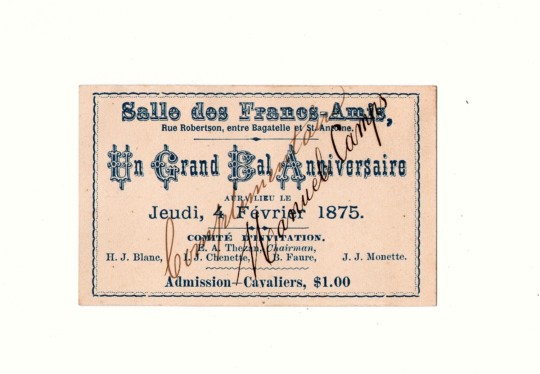
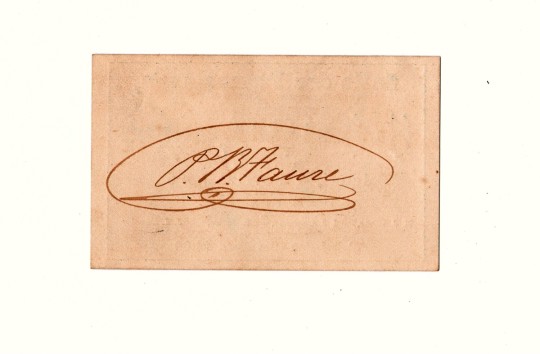
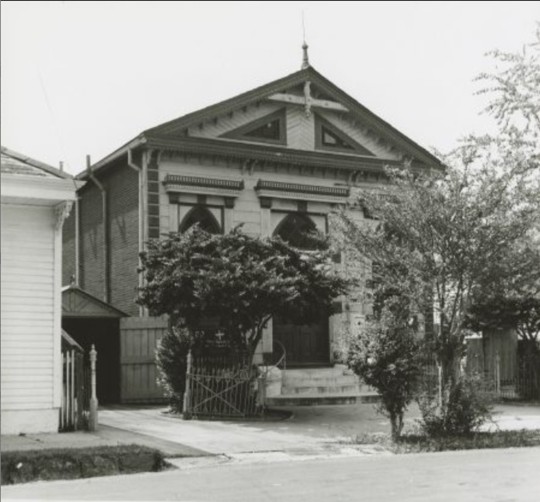
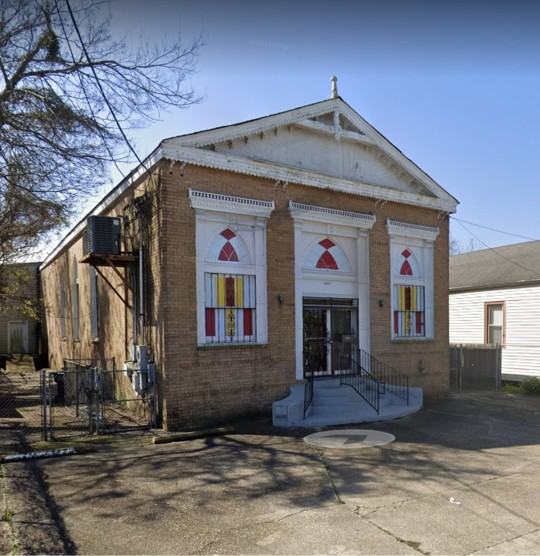
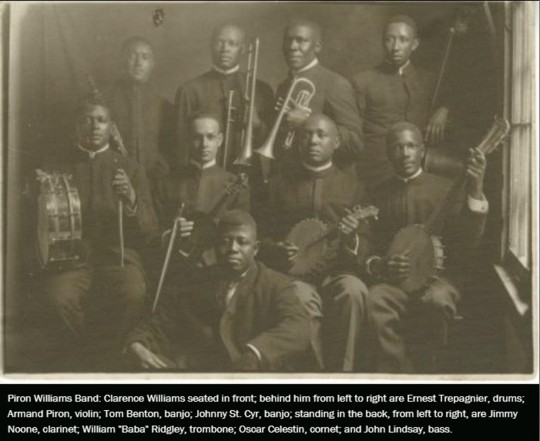
FRANC AMIS HALL / BALL INVITATION 1875
To say rare is an understatement , probably one of a kind , original Grand Ball invitation for Thursday, February 4, 1875 at the Francs Amis Hall on N. Robertson Street.
The FRANCS AMIS was a benevolent society and social dance hall probably the most important one formed by and for wealthy Creoles of color. La Société des Francs Amis (roughly, The Society of True Friends) bought this lot in 1861, and built the hall later in the 1800s (the gothic arched windows were probably early 20th century additions). Famed civil rights activist Homer Plessy, whose 1892 challenge to segregation laws in New Orleans resulted in the Supreme Court’s infamous “separate but equal” ruling of Plessy v Ferguson, was an officer of the society. Today, the Genesis Missionary Baptist Church worships in the building, which it has owned since 1963.
Jazz History Site / many great jazz bands played the Hall, Guitarist Johnny St. Cyr called it “a place of dignity” for downtown Creole society. It usually featured dance bands such as the John Robichaux Orchestra, the Superior Orchestra, and the Olympia Orchestra, but “hotter” uptown bands that included Pops Foster and Lee Collins reportedly played here as well. The club was popular with musicians, who earned $2.00 per engagement and ate and drank for free, according to Ricard Alexis, who played with Henry “Kid” Rena. “Wooden” Joe Nicholas, Hypolite Charles, and singer Lizzie Miles also performed here.
A hard to find piece of New Orleans, Creole of Colors, Civil Rights and Jazz History. The invitation has the name of MANUEL CAMP as a guest and the signature of J B FAURE one of the society members and part of the committee organizer of the ball.
Item No. E4983-119
Dimensions: 3.5″ x 2.25″
SOLD
#jazz history#jazz gems#jazz ephemera#ephemera#nola ephemera#francs amis#salle de francs amis#francs amis hall#creole of color#new orleans history#black creole#creoles of color#afro creole#black history#old new orleans
7 notes
·
View notes
Photo
Born on this day: “Jazz Cleopatra” Joséphine Baker (née Freda Josephine McDonald, 3 June 1906 - 12 April 1975). The trailblazing dancer, actress, cabaret chanteuse, civil rights activist and paragon of Black glamour found acclaim in the 1920s in her adopted city of Paris performing at the Folies Bergère, where she was promoted variously as the “Black Venus", the "Black Pearl", the "Bronze Venus" and the "Creole Goddess.” Baker set a kind of template for subsequent performers like Eartha Kitt and Grace Jones (and portraying her in a biopic is an unrealized dream project for Diana Ross). Pictured: Baker captured performing in Harlem in 1950 by Eve Arnold.

Josephine Baker in Harlem, New York, 1950. Photo by Eve Arnold
#josephine baker#lobotomy room#eve arnold#african american#folies bergère#exotic dancer#burlesque#chanteuse#black venus#bronze venus#black pearl#jazz cleopatra#civil rights activist#black glamour#creole goddess
6K notes
·
View notes
Text
Baby Dodds: The Revolutionary Pioneer of Jazz Drumming
Introduction: When discussing the evolution of jazz, few names hold as much significance in the realm of drumming as Warren “Baby” Dodds. Born one hundred and twenty-six years ago today on December 24, 1898, in New Orleans, Louisiana, Dodds was a visionary percussionist who forever changed the role of drums in jazz music. From his early beginnings in New Orleans to his pivotal contributions in…
#Baby Dodds#Baby Dodds Talking and Drum Solos#Bunk Johnson#Creole Jazz Band#Gene Krupa#Jazz Drummers#Jazz History#Jelly Roll Morton#Johnny Dodds#Kid Ory#King Oliver#Louis Armstrong#Max Roach
1 note
·
View note
Text

https://mkkwebradio.com.br/
Amigos: chegou a edição 34 do programa "Cabine de Som", via MKK webradio, a marcar a sua estreia nesta segunda-feira, dia 2 de dezembro, a partir das 23 horas, com repetição no sábado (dia 7, às 15 horas). Mediante mais duas repetições na segunda (dia 9 - 23 horas) e sábado, dia 14 às 15 horas.
Falo no primeiro bloco sobre dois artistas sensacionais do Rock brasileiro dos anos 1960: Loyce & Os Gnomos e Erasmo Carlos.
No bloco 2, o assunto será o samba-Rock e a soul Music do Brasil, da virada dos anos sessenta para os setenta: Jorge Matheus e Os Diagonais.
O terceiro bloco traz Blues da pesada com Sonny Boy Willianson e Lead Belly.
E para encerrar o programa, o cancioneiro vintista vem com tudo através da interpretação clássica do charleston: "Ain't She Sweet" por Ray Starita & Piccadilly Revels Band e o Jazz de New Orleans com King Oliver's Creole Jazz Band, com a presença de Louis Armstrong na banda!
Pauta e locução: Luiz Domingues. Edição e produção: Markko Mendes. Foto: Lincoln Baraccat.
#Programa “Cabine de Som” de Luiz Domingues#Programa “Cabine de Som” da MKK webradio#Música Eclética#Luiz Domingues#Markko Mendes#Loyce & Os Gnomos#Erasmo Carlos#Jorge Matheus#Os Diagonais#Sonny Boy Willianson#Lead Belly#Ray Starita & Piccadilly Revels Band#King Oliver's Creole Jazz Band#Programa “Cabine de Som” edição 34
0 notes
Text
#French Quarter#Anniversaries#Festivities#New Orleans culture#Historic celebrations#Jazz music#Mardi Gras#Street festivals#Creole heritage#Bourbon Street#Party atmosphere#Southern charm#French colonial history#Cultural events#Iconic landmarks
0 notes
Text
Centennial: King Oliver's Creole Jazz Band: Released Today
Today is a banner day for lovers of early American jazz — it’s the release date for Archeophone Record’s epic new box set Centennial: King Oliver’s Creole Jazz Band. The centenary it celebrates is the 1923 Chicago recording sessions of King Oliver and his band. If the release is a minute late it can only because the people at Archeophone are that exacting. They have restored and remastered the…

View On WordPress
1 note
·
View note
Photo
the first time i posted this i didn't know the term 'ofays'! i had put 'old face' bc that's what i heard it as, but this time around i had subtitles to go by heh


- king oliver’s creole jazz band, new orleans
We were the first coloured band to play at most of the towns at which we stopped. The white people – the ofays – were not used to seeing coloured boys blowing horns and making fine music for them to dance by. But before the evening was over, they loved us. - Louis Armstrong
544 notes
·
View notes
Link
From the Big Easy to the Live Music Capital: Exploring the Vibrant Journey from New Orleans to Austin Uncover the captivating journey from the vibrant streets of New Orleans to the live music capital of the world, Austin. This article aims to provide a comprehensive guide for travelers embarking on this exciting road trip, highlighting the unique cultural, musical, and historical aspects of both cities. [caption id="attachment_63247" align="aligncenter" width="1024"] New Orleans to Austin[/caption] Getting Started Before hitting the road, proper planning and preparation are essential. This section will provide an overview of the MECE Framework (Mutually Exclusive, Collectively Exhaustive) and its application in organizing the content, ensuring that your road trip is well-structured and enjoyable. By breaking down the trip into distinct categories, such as exploring New Orleans, hitting the road, and arriving in Austin, you can ensure that all aspects of the journey are covered. Exploring New Orleans Embracing the Spirit of NOLA New Orleans, also known as NOLA, is a city with a rich history, diverse neighborhoods, and unique architecture. The French Quarter, with its vibrant streets and historic buildings, is a must-visit. Immerse yourself in the lively atmosphere of Bourbon Street and experience the unique blend of cultures that make up the heart of the city. The Garden The district showcases beautiful mansions and oak-lined streets, providing a glimpse into the city's opulent past. Don't forget to visit the iconic St. Louis Cathedral, a symbol of New Orleans' deep-rooted Catholic heritage. Indulging in Culinary Delights New Orleans is renowned for its Creole and Cajun cuisine, which combines flavors and techniques from French, African, and Spanish cooking. Sample classic dishes like gumbo, jambalaya, and red beans and rice, as well as local favorites like beignets and po'boys. Explore the city's culinary scene by visiting renowned restaurants such as Commander's Palace, where you can savor refined Creole cuisine, or Parkway Bakery & Tavern, known for its delicious po'boys. Immersing in the Rhythms of Jazz New Orleans is often referred to as the birthplace of jazz, and its music scene is legendary. Experience the soulful sounds of live jazz in iconic venues like Preservation Hall and Frenchmen Street. Immerse yourself in the city's musical heritage by attending the annual New Orleans Jazz & Heritage Festival, a celebration of jazz, blues, and other genres that showcases both local and international talent. Hitting the Road Choosing the Perfect Route When embarking on the road trip from New Orleans to Austin, consider the different route options available. One popular route is to take Interstate 10, which offers a direct and efficient drive. However, if you want to take a more scenic route, consider Highway 90, which takes you through charming towns and picturesque landscapes. Whichever route you choose, make sure to plan for stops along the way to rest, refuel, and explore the unique attractions of each destination. Embracing Nature's Beauty As you drive from New Orleans to Austin, you'll have the opportunity to witness the natural beauty of the region. Louisiana is known for its swamps and bayous, so consider taking a swamp tour to see alligators, turtles, and other wildlife up close. In Texas, explore the Hill Country, with its rolling hills and scenic vistas. Take a hike in one of the many state parks along the way, such as Buescher State Park or Bastrop State Park, and enjoy the beauty of nature. Historical and Cultural Pit Stops Historical and Cultural Pit Stops Make sure to include historical and cultural pit stops during your journey. There are notable towns and cities along the route that offer interesting landmarks and museums. In Baton Rouge, visit the Louisiana State Capitol, a stunning example of art deco architecture. Lafayette, known as the heart of Cajun Country, offers a glimpse into Acadian culture with its vibrant music and delicious cuisine. Don't miss the opportunity to explore the historic San Jacinto Battleground State Historic Site in Houston, where the famous Battle of San Jacinto took place. Arriving in Austin Soaking in Austin's Music Scene Austin is known as the live music capital of the world, and it offers a vibrant music scene. Visit iconic music venues like the Continental Club and ACL Live to enjoy live performances by talented musicians. Don't miss the annual South by Southwest (SXSW) festival, where you can experience a diverse range of music, film, and interactive media. Exploring Austin's Unique Neighborhoods Austin is a city of unique neighborhoods, each with its charm and character. Visit South Congress, known as SoCo, for its eclectic shops, trendy boutiques, and vibrant food scene. Explore Rainey Street, a historic district lined with converted bungalows turned into bars and restaurants. Don't forget to wander through East Austin, a neighborhood known for its street art, food trucks, and live music venues. Indulging in Austin's Foodie Culture Austin's food scene is a melting pot of flavors and influences. Indulge in Tex-Mex classics like breakfast tacos and queso, or savor the smoky flavors of Texas barbecue. Visit famous food trucks like Franklin Barbecue or Torchy's Tacos, or dine at renowned restaurants like Uchi or Franklin's BBQ. Don't miss out on trying Austin's unique creations, such as the "Keep Austin Weird" ice cream flavors at Amy's Ice Creams. The journey from New Orleans to Austin is a vibrant and unforgettable experience, filled with rich history, diverse cultures, and incredible music. Whether you're exploring the streets of New Orleans, hitting the road through scenic landscapes, or immersing yourself in Austin's music and food scene, this road trip offers a perfect blend of adventure and relaxation. So pack your bags, hit the road, and get ready to create lasting memories on this captivating journey from the Big Easy to the live music capital of the world.
#ATX#Austin#Austin_City_Limits#Austin_food_scene#Austin_music_scene#Austin_Bergstrom_International_Airport#Baton_Rouge#BBQ#blues#Cajun_culture#Creole#Food#French_influence#French_Quarter#Gulf_Coast#Houston#I_10#I_35#jazz#live_music#Louisiana#Mardi_Gras#music_festivals#New_Orleans#nightlife#NOLA#road_trip#San_Antonio#Sixth_Street#southern_charm.
0 notes
Text
[Afro Caribbean Beats] le petit dernier

Le petit nouveau dans la galaxie du Bananier bleu s'appelle Afro Caribbean Beats, et est sous-titré, "la discothèque incomplète". Ce nouveau blog, fortement lié au site du Bananier bleu, reprend le contenu du compte Instagram sur lequel sont quotidiennement publiés de nouveaux disques. L'idée est de faire vivre une petite discothèque de vieilles perles, d'enregistrements oubliés, d'incontournables des musiques afro-caribéennes, qui dépasse le seul jazz et les musiques traditionnelles. A consulter ici : https://insta.bananierbleu.fr
#lebananierbleu#afro caribbean#music#caribbean music#creole music#zouk#jazz#cadence#compas#soukous#fusion#afrobeat#vinyl
0 notes